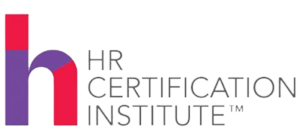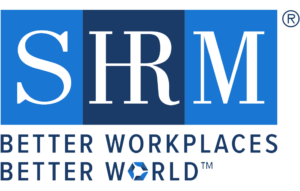How Automated Reference Checking Saves You from Hiring Mistakes
We are a certified Continuing Education provider for



How Automated Reference Checking Saves You from Hiring Mistakes
Candidate reference checking is quite a hot debate among hiring managers. The advocates claim that it yields tremendous benefits: it allows recruiters to gain first-hand genuine and relevant insight into a candidate’s experience, skills, performance, and personality.
On the other hand, the naysayers argue that the reference checking procedure is time-consuming and labor-intensive. Moreover, the quality of the gained information is questionable, as all candidates usually list references that will always praise them.
So, enter automated reference checking, a tool that standardizes the process, rendering it fast, objective, and genuine. Are you still making small talk over the phone with a candidate’s former colleague or BFF?
Stop now, and let’s consider together the advantages of automated reference checking systems, how they work, and how to use them!
Is Reference Checking Still Relevant in the Hiring Process?
When it comes to talent acquisition strategies, checking all candidates’ references is vital in selecting and hiring. We were surprised to learn that many companies, big or small, forgo this crucial step. But ask yourself this question: who is more apt in giving you an honest and comprehensive overview of a candidate if not a former manager/supervisor?
According to a study conducted by the Society for Human Resource Management (SHRM),
the great majority of organizations (92 percent) conduct background checks, mostly at the pre-employment stage (87 percent).
Unfortunately, most of these checks refer to criminal backgrounds and do not focus on references related to job performance, skills, behaviors, etc.
Sometimes it’s difficult to obtain a candidate’s references, and other times it’s complicated to get a hold of the reference in the first place, so you end up playing a not-so-fun game of phone or email tag, or both!
Once you finally manage to make contact with the reference, what now? Are you prepared with what to say? Are they standoffish or open to discussion? In many cases, references are hesitant to discuss past employees beyond dates of employment and rehire eligibility for fear of litigation and legal ramifications.
Regarding honesty, we know all recruiters have issues with getting viable information from the references listed on the candidates’ resumes. After all that strenuous process of finally getting somebody over the phone to talk to you about a candidate, you only learn that the applicant did a terrific job, has an amazing personality, and deserves all the best in the world.
Imagine if you could avoid all of the back and forth, automate the process, and ensure the whole process is compliant and conducted in an ethical manner; would that motivate you more to want to check references?
In this context, it is best to renounce reference checks completely and rely solely on your pre-employment assessment tests focused on cognitive skills, technical aptitudes, and personality traits.
Why Are We Still Checking Candidates’ References?
Before you dismiss the practice of checking candidates’ references (called referees in this guide), let us tell you when and how the process can help you make the best hires:
- Companies rely on reference checking to perform due diligence. It means they confirm that candidates have the skills and experience they claim to have on their resumes.
- Most of the time, reference checking occurs late in the recruiting process, before the interview you plan to conduct, to verify a candidate’s skills, education, work history, performance, achievements, and behaviors. Relying on the information obtained from the referees, a recruiter can design a more focused interview of any type.
- Reference checking has great importance when a hiring manager or CEO has to decide between the top candidates left on the very short list to occupy the role.
As you can see, there is value and meaning in reference checking if we do it right. But, to cover all angles, we will play devil’s advocate for a few moments. So let’s discuss the drawbacks of traditional reference checking, so you can get a better idea of why we need automated systems to avoid hiring mistakes and recruit top talent.
The Drawbacks of Traditional Reference Checks
At this point, we are not talking about criminal or credit background checks but the classic approach of learning more about a candidate. You pick up the phone or start writing emails to the referees listed on a candidate’s resumes, trying to have a productive chat with them. But…
- Only a small percent of contacted referees complete your interview.
- Most referees offer candidates overall praises because nobody wants to jeopardize other peoples’ jobs, financial stability, future careers, etc.
- Most referees you contact are probably busy and will answer you briefly if they answer at all.
- Since revealing sensitive information about past employees has some legal ramifications, you will not likely get an objective overview of the candidate.
- You will not always speak to a candidate’s supervisor or manager. Still, a former colleague and even someone from the HR department might answer some questions but not illuminate you in your hiring decisions.
Since the path of getting honest, actionable, and relevant reference checks like this is long and bumpy, the time required to fill and hire new employees increased dramatically. The times related to filling a new position go over a month and even two months in some cases.
Since top talented employees are off the market in about ten days, does your company afford to waste so much time and money with traditional reference checks?
Enter the Automated Reference Checking Systems
An automated reference checking system is a tool becoming more and more popular with companies and recruiting agencies. In its most simple description, such a system harnesses the Internet’s power to request and gather direct and useful references on your top candidates. The data obtained with an automated reference checking tool leads to better hiring decisions and overall better hires. Let’s see why!
1. Automated Reference Systems are Standardized and More Scientific
These tools consist mostly of online surveys that referees access and complete. Our Reference Hunter tool allows you to use some of the pre-set questions or create your custom reference questions to address specific aspects that interest you in a candidate. It works along the lines of Candidate Scorecards. It is a standardized method to apply for all candidates to get consistent and usable information regarding each candidate’s skills, experience, aptitudes, behaviors, etc. Usually, referees answer the full questionnaire instead of providing vague answers and platitudes over the phone.
According to Greg Moran, President, and CEO of OutMatch,
Automated checks imbed science into the process of learning more about each candidate using an assessment approach. Completion rates are around 82% for automated reference checks compared to a 30% phone reference check completion rate. Because there is no incentive to say anything negative or positive about a candidate, the reference must be truthful when supplying information. There are no right or wrong answers. It’s limited to questions about candidate traits and qualities that relate to the job itself.
Speaking of science, automated reference checkers also come with credible scoring systems, eliminating scoring variations and personal bias within the hiring team.
2. The Automated Reference Checking Tool Eliminates Referees’ Bias
Referees often feel that they have to be overly positive or even protect employees who worked in their companies in the past. Using a standardized format for gathering information about your top applicants makes the entire process less personal for the referees. Thus, they are more likely, to be honest in their answers. Less biased reference checks allow recruiters and candidates to screen candidates based on abilities, achievements, and so on.
Sometimes, referees refrain from being very honest about a candidate (former employee) or disclose everything they know due to fear of liability, internal policies, and so on. However, a professional automated reference tool has anonymity features that encourage referees’ honesty and keeps them safe.
3. Automated Reference Checkers Save Companies a Lot of Time
The beauty of automation is that while it does its thing, recruiters and hiring managers can spend their time with other hiring process steps in parallel. Implementing an automated reference checking process can cut down the time to fill by up to eight days, if not more.
Speeding up the hiring process while increasing its quality is a dream come true for hiring managers and companies. Using an automated reference checking tool helps recruiters collect much information quickly and very affordably.
Other Benefits of Automated Reference Checking Systems
The best part of an automated reference checking tool is that you can use it independently or as a part of your customized hiring system. Such tools come with other notable benefits, and we will list them here:
- Automating the process of reference checks usually means giving referees enough time to prepare feedback, study the former employee’s file, look over some past evaluations, etc. An improvised and unexpected phone call that often disrupts a manager/supervisor from work will most likely yield poor results compared to using an online survey asking for specific information and feedback.
- Many such tools – such as is our Reference Hunter – offer recruiters the chance to customize the questions per position/job role and structure the survey to collect useful information. For instance, you can get better insights if you use scales instead of binary response choices.
- The automated reference surveys usually yield back a candidate summary together with specific reports on strengths and weaknesses, areas for professional improvement, personality, attitudes, integrity, skills, and so on. With the help of this information, you can design better second-round interviews with a focus on behavioral questions and so on.
- Automated systems reduce reference fraud, as the tool can flag candidates whose references come from the same IP address.
- The creation of custom templates and questions is also possible with an automated reference checking system, which helps brand and tailor the experience accordingly.
How Does the Automated Reference Tool Work?
The principles and steps behind an automated reference checking system are straightforward and easy to implement by any recruiter:
- You request a reference’s contact information from your top candidates; we recommend a supervisor or a manager, but you can go as far as contacting a former team member or colleagues on a specific project.
- Depending on the job role and the referee you are going to contact, you can use a couple of pre-made questions or create some of your own.
- You make it clear for the candidates that you are going to check their references; in some cases, it is best to ask their permission, as reference checking does not come without legal ramifications.
- With some reference checking tools, the candidates are the ones who send the request (survey) directly to their former CEOs, colleagues, project managers, etc. Our system gets permission to contact the referees and attempts to do so by text or email.
- The systems notify recruiters whenever a contacted referee completed the survey so you can review the feedback in real-time.
Do You Use an Automated Reference Checker?
Numerous companies vouch for the efficiency and usefulness of automated reference checking tools. Such systems reduce the time and costs involved in the hiring process and provide hiring teams with all the information they need to make better hiring decisions.
Checking references doesn’t have to be difficult, especially with a handful of tools at your disposal to make the process easier. We have tons of resources and guides for hiring and interviewing as well. So make sure to take a look and see what can help you.
So – how is your company or recruiting agency going in this regard? Have you ever used an automated reference checking tool? What would motivate you to try one? We’d love to hear more about your experiences and opinions on this matter!
Book An Appointment
Schedule a Free Consultation to Turn your Hiring Process into a Top Talent Generating Machine
Talk With Us Now
Identify Top Candidates ASAP
(833) 332-8378
